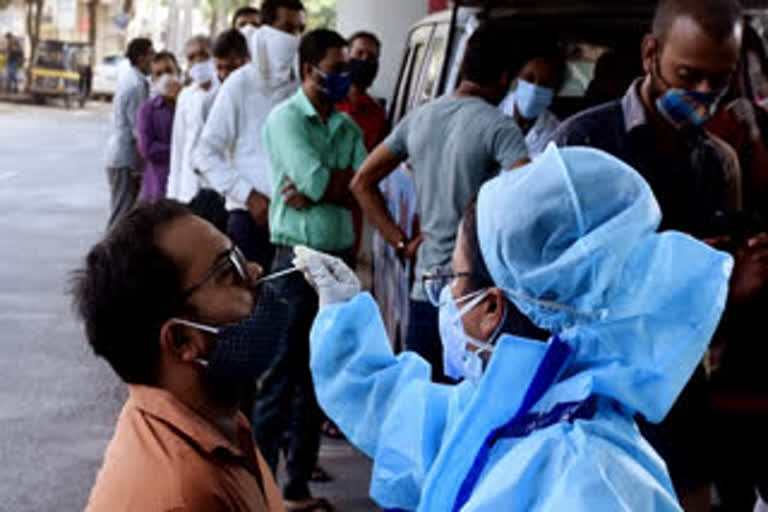New Delhi: The second wave of deadly Covid-19 infections, local lockdown measures are a cause of concern as they could disrupt supply chains, foreign investments and domestic credit market, said research agency India Ratings, adding that the vaccination drive could minimise the adverse impact of the second wave but it largely depends on the speed of vaccination.
India Ratings, a Fitch company, said India’s second round of COVID outbreak is moving in a direction different from the global trend as cases seem to have abated in major countries and the massive vaccination drive is expected to anchor any meaningful surge.
“Therefore, the counter trends coupled with spurt in daily cases would be the cause for concern in the near term. While the mortality rates have remained benign, the infection rate is increasing at a much faster rate than earlier,” said the agency.
New Covid infections hit a record high
Early this year, it seemed the country was able to keep the new Covid cases under check as the number of daily new cases was in the range of 9,000-12,000 in the first two weeks of February.
However, the new cases suddenly started rising from the middle of February and reached at an all time high of more than 1.26 lakh new cases yesterday (April 7).
Local lockdowns to disrupt supply chains
India Ratings said the renewed surge in cases has brought to fore the fear of localised lockdown that poses a moderate challenge to the supply chains of various sectors.
The agency, however, says that the ecosystem of handling a partial lockdown has reasonably geared up in the last one year and companies have developed inventory management practices and accelerated automation in handling supply chain logistics amid a restricted environment.
Read More: Rise in prices of pulses, veggies and eatables upsets kitchen budgets
Rising transportation cost
In its assessment, India Ratings says that the cost of transportation is bound to go up due to local lockdowns, which was already under pressure due to high fuel costs.
The retail prices of diesel and petrol have hit a record high of Rs 90-100 per litre respectively in some locations as both the Centre and States have refused to cut taxes as they are struggling to generate revenue during the pandemic.
High petroleum prices are feeding into inflation and even the Reserve Bank of India has also expressed concerns over high incidence of taxation on petroleum products.
In the monetary policy announced on Wednesday, the Reserve Bank expressed concerns over cost push price pressures due to increase in global commodity prices and called for coordinated policy actions by Centre and States to mitigate the increase in domestic input costs.
Read More: Lockdowns break backbone of economy, says Anil Ambani's son



